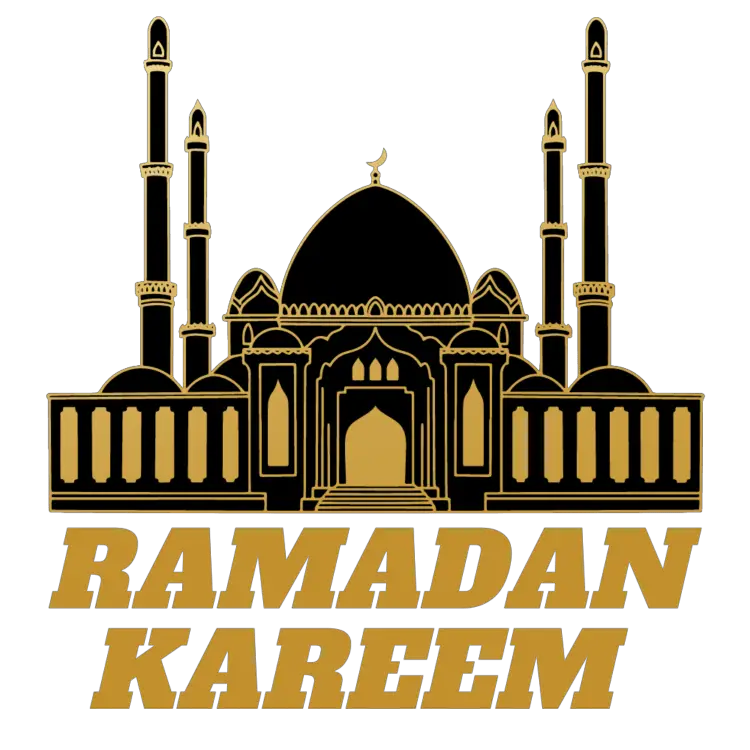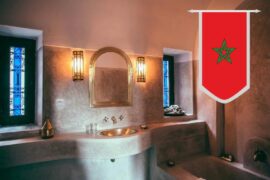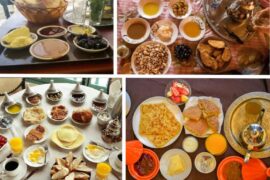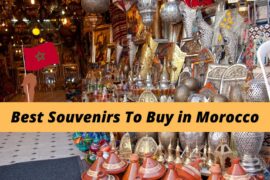RAMADAN is a holy month for Muslims and Moroccan’s daily routines are different from the other months of the year. Also, Moroccan food habits change and there is a typical Moroccan Ramadan food for the iftar table during this holy month in the kingdom, and some of them, are prepared in advance for this special period.
RAMADAN is a month of fasting, extra prayers at night “Tarawih“, charity, and good deeds in general. At the end of RAMADAN, there is an important religious celebration called “Eid Al Fitr” called also by Moroccans “EID SGHIR” which means the small celebration.
Moroccan RAMADAN Food Prepared in advance
Traditionally, Women in Morocco used to prepare many pastries for this happy and holly month for Moroccans to be on the table in the early morning meal “SUHUR” and the breaking fast meal “IFTAR or FTOOR” at sunset.
There are two Moroccan Ramadan Food prepared mostly in advance of the holy month:
Chebbakia
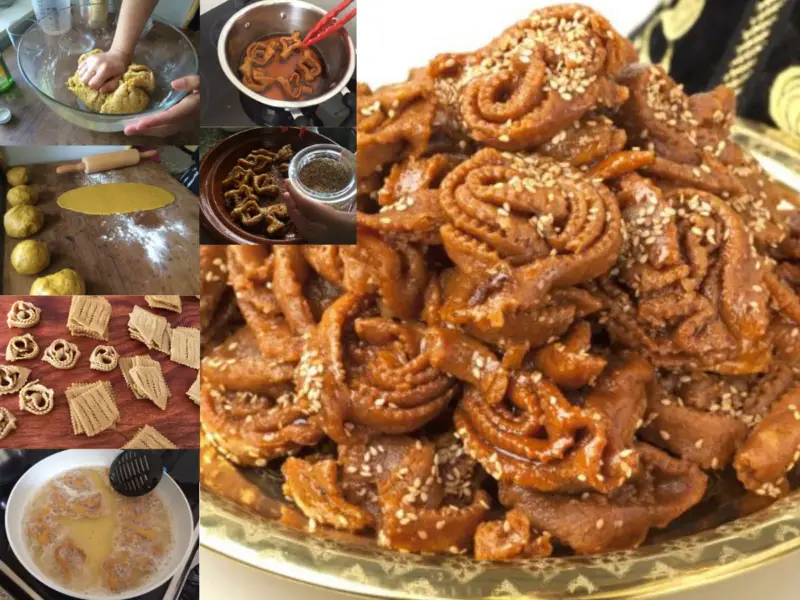
Sellou
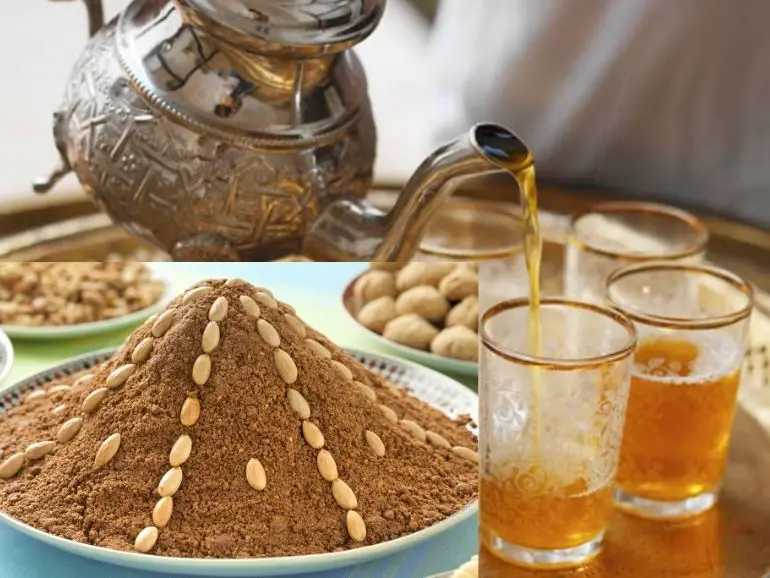
Get Your Moroccan Sellou On Etsy
Selou or Sfouf is a very rich and energetic mixture of roasted dried fruits (almonds, sesame, peanut), roasted flour, cinnamon, anise, gum arabic, nutmeg, icing sugar or honey, salt, butter, …etc.
Nowadays, women’s employment in Morocco is increasing and they do not have time to prepare Chebbakia or Sellou. So, they may just buy them in local pastry shops. If you are living in Morocco, you may witness, a couple of months before RAMADAN, the opening of many temporary shops making and selling these pastries.
Typical Moroccan RAMADAN Iftar Meal
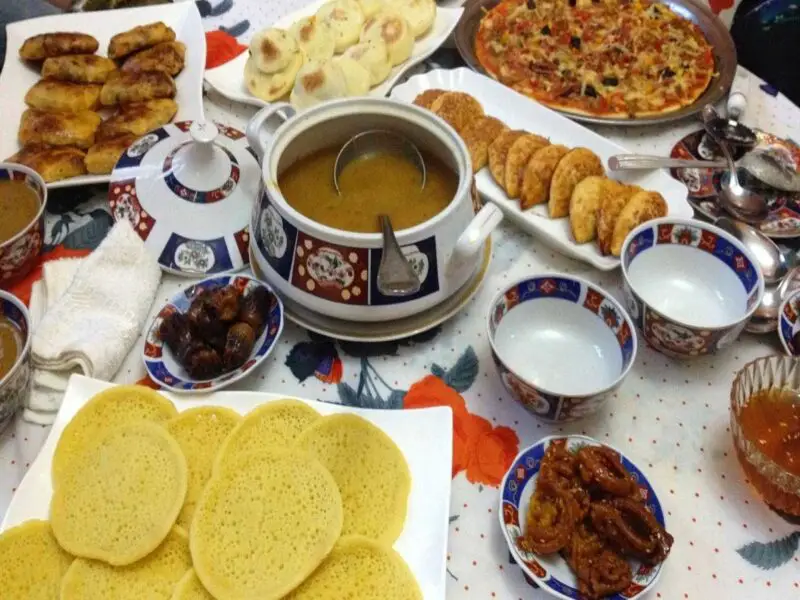
The Moroccan meal to break the fast, may change from one family to another, the region and also between cities and villages…But, most of the time, in addition to Chebbakia and Sellou, you have :
Harira ( Moroccan Soup) with Dates
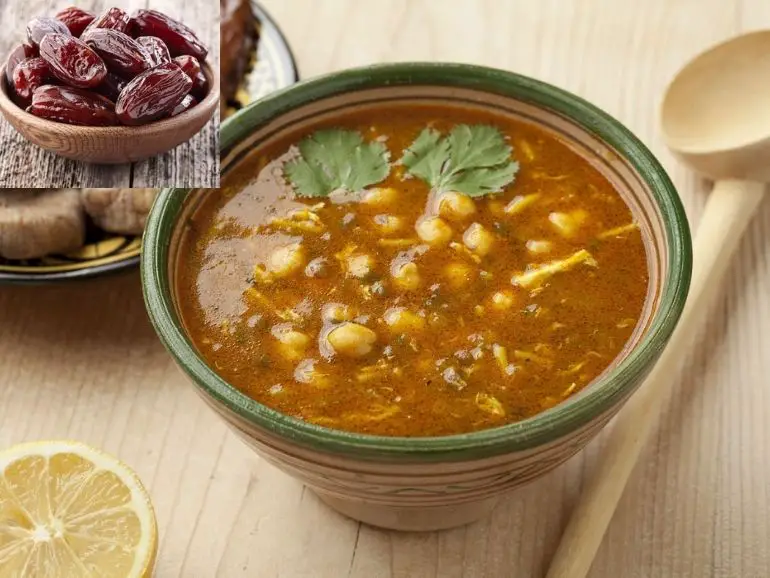
Moroccan Mint Tea
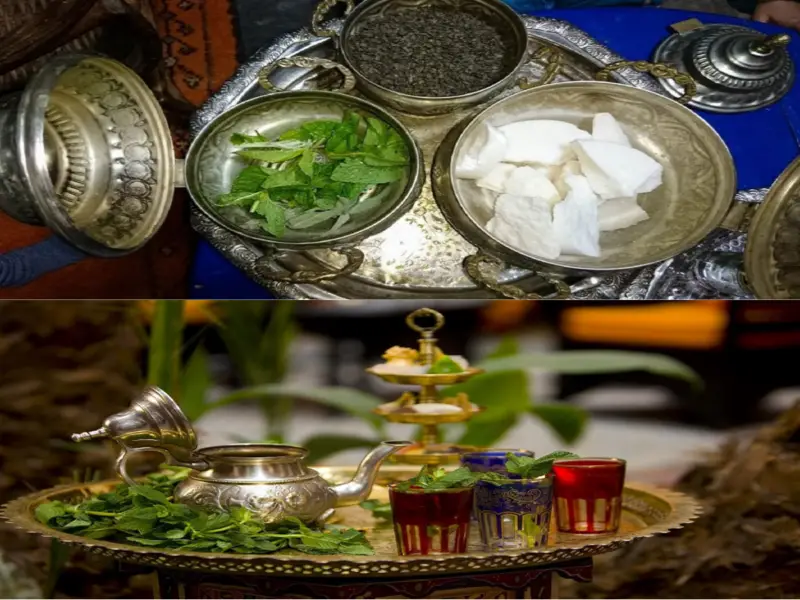
Baghrir
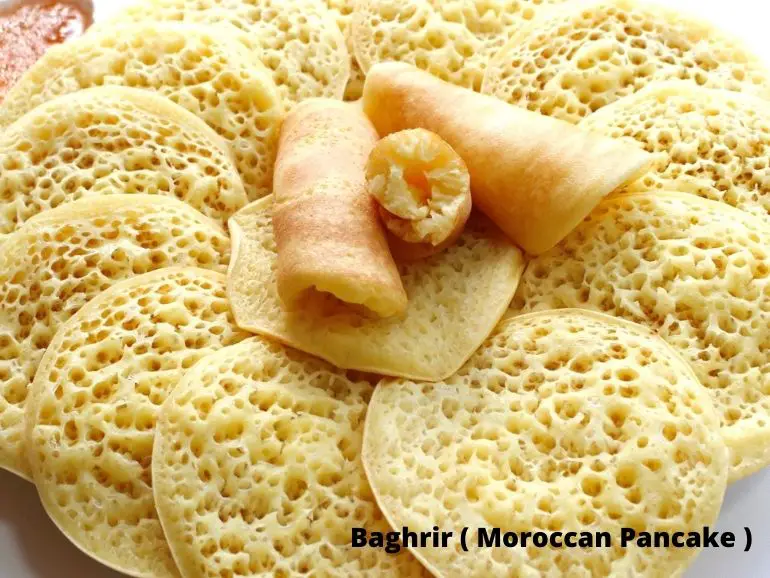
Get The Moroccan Pancake On Etsy
Baghrir is a Moroccan version of pancakes and Moroccans used to have it for breakfast or snack with coffee or mint tea.
Meloui
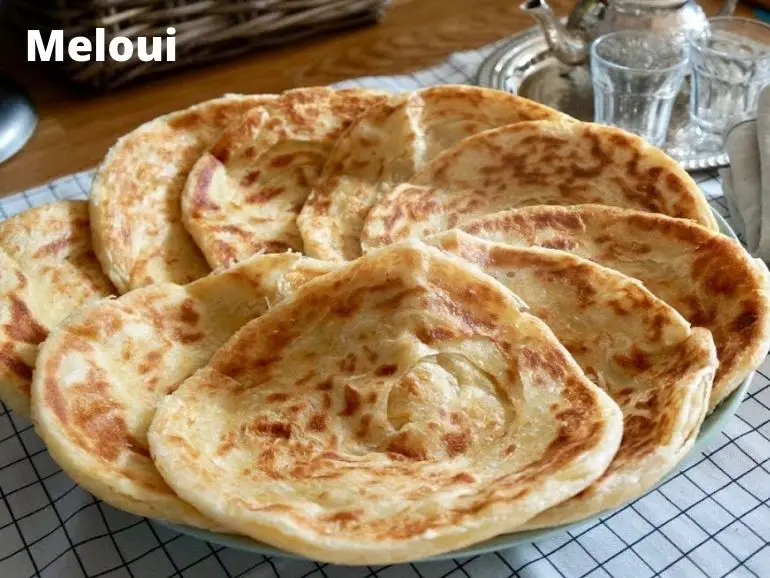
Meloui, Msemmen, or Rghaif are puff pastry pancakes prepared from the same dough and are different depending on how the dough is rolled at the end of the preparation, either square (Msemen and Rghaif) or round (Meloui).
Homemade or Buyed Bread
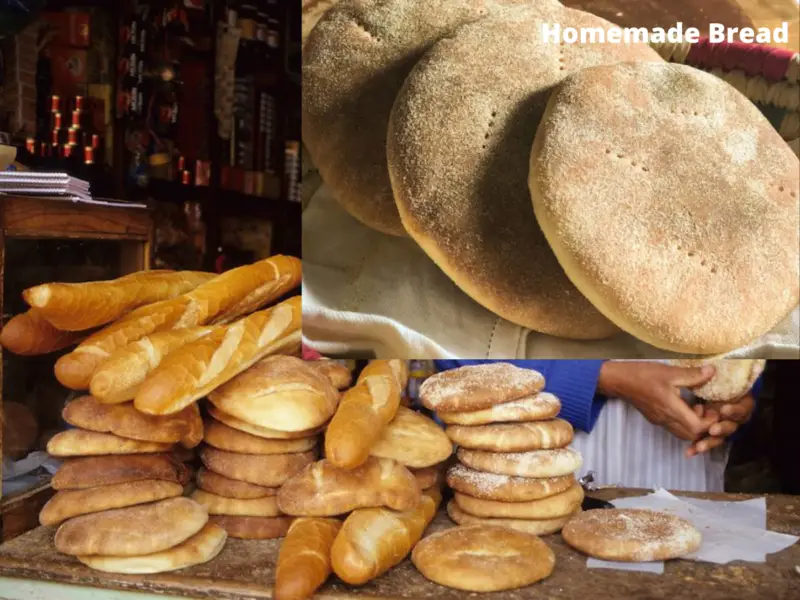
Homemade bread is prepared with flour, salt, yeast, and water. Moroccans have an old tradition of cooking it outside in the traditional communal oven called ” Ferrane ” even if they have an oven in their house.
Stuffed Small Bread
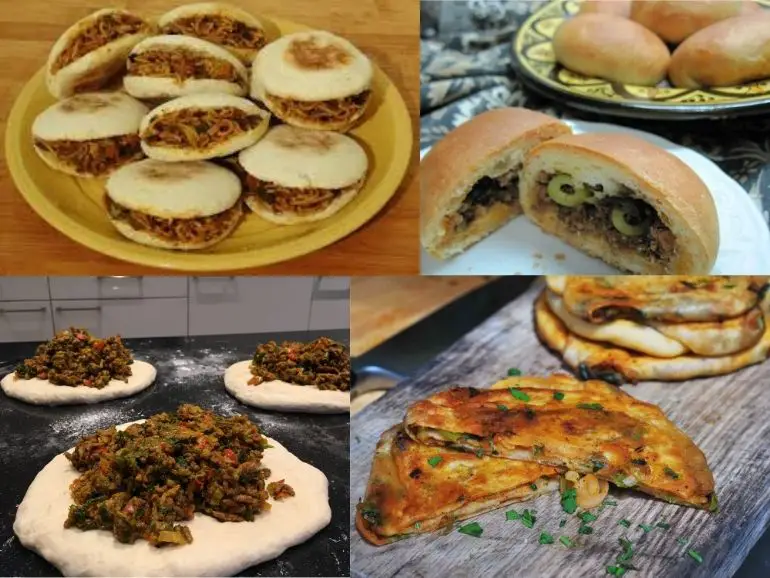
Stuffed bread is a small bread with a simple dough (flour, salt, yeast) filled with different stuffings like minced meat, onion, vegetables, and cheese.
Milk and Boiled eggs
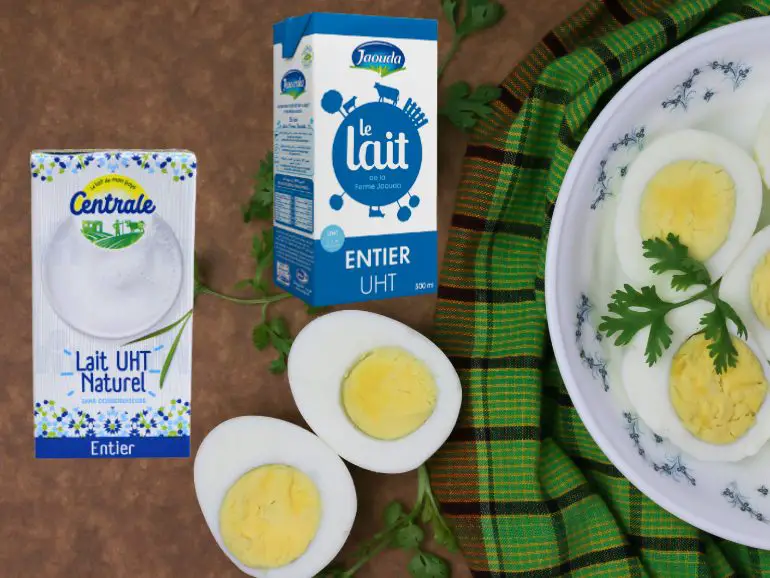
Finally, you can experience being in Morocco during RAMADAN just one month a year. So, if a Moroccan family invites you during this month, do not hesitate to accept the invitation. Then, to have more facilities for communication with all family members, especially those who are not good at foreign languages, having some basics in DARIJA is a must. You can explore our Online DARIJA Course available on SkillShare FOR FREE for one month.
Have you ever spent the holy month of RAMADAN or been invited to have an Iftar meal with a Moroccan family? if yes, tell us in the comments section, about your experience?

